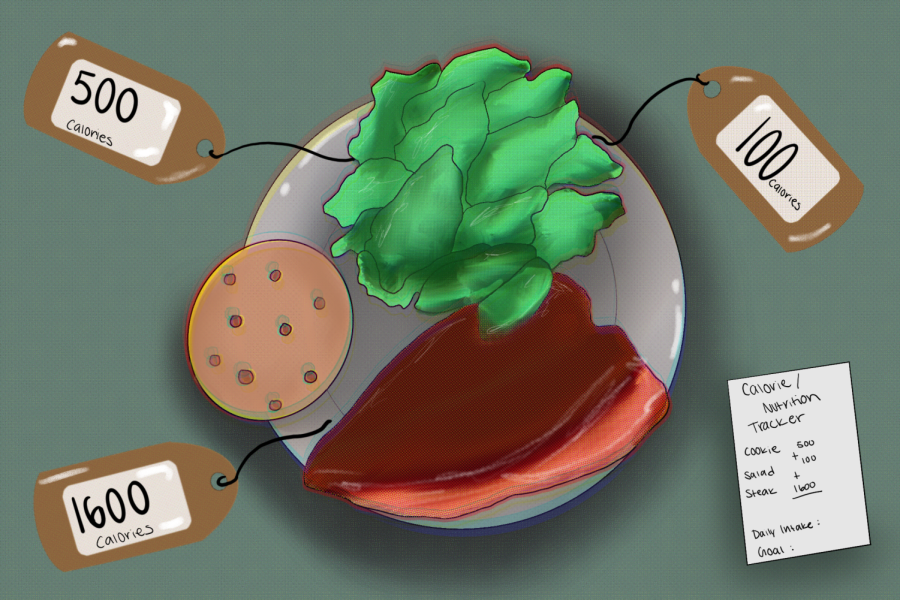Nutrition classes should stop asking students to track calories
October 12, 2022
Content Warning: This column contains discussion of eating disorders. If you are struggling with an eating disorder and are in need of support, please call the National Eating Disorders Association Helpline at 1-800-931-2237. For a 24-hour crisis line, text “NEDA” to 741741
I was 15 years old when I first discovered My Fitness Pal — an app that tracks calories and exercise. I barely knew what a calorie was before then, but I soon discovered how many calories are in most things. Those numbers still haunt me. That’s why I was so surprised when I was asked to use the app to track my caloric intake for my Fundamentals of Nutrition class.
Izzy Logan, a social work senior, is enrolled in Fundamentals of Nutrition this semester.
“I’ve been really working ahead a lot more because the assignments caused me a lot more distress than I anticipated,” Logan said.
Logan, who has lived with an eating disorder, felt that the assignment was a trigger they hadn’t anticipated. While there’s an alternative option to track someone else’s caloric intake, they explained they felt ashamed doing this.
Not everyone that goes on a diet or tracks their caloric intake will develop an eating disorder. In fact, a lot of students complete the assignment without a second thought.
“One day I ate a bunch of Chick-fil-A and P Terry’s … I was like, wow, that’s not really healthy, but at the same time, it just didn’t really affect me,” public relations senior Audrey Kaufman said.
Certain circumstances make people more vulnerable to eating disorders — with college at the top of that list. The stress, uncertainty, new independence and pressure often experienced in college make a “perfect storm” for eating disorders.
The statistics back this claim: full-blown eating disorders typically begin between 18 and 21 years old, and the number of college students who exhibit eating disorder symptoms increases each year. A 2021 study found that, in particular, diet apps like My Fitness Pal exacerbate and trigger symptoms of eating disorders by fixating on numbers, achievement, competition and weight loss.
UT offers other classes that cover mindful eating activities, but they are not housed within the nutrition department. Logan mentioned they participated in an educational psychology class that actually improved their relationship with food. The class taught students how to appreciate where food comes from, the labor and love put into it, and how the food makes them feel.
“(Students should think) of (food) from a mindfulness perspective,” said Katie Nikah, senior research program coordinator in the department of nutrition sciences. “(Think about) how it actually affected you when you ate, or looking at the whole day — how you felt, what you ate and how your body reacted to it instead of just looking at typical calories, fat, macronutrient intake.”
Nikah added that certain nutritional information is still necessary in terms of studying nutrition. That’s something students should take in consideration when signing up for nutrition classes, Nikah said.
Professors should adjust assignments to better reflect the current information and relevant concerns surrounding food and body image issues, and cater to students who may feel uncomfortable with the project.
Although the department seems open to adjusting the assignment to incorporate more inclusive projects, some aspects of the class, like recording nutrient intake, seem set in stone for their educational purposes. The nutrition department should teach students to focus primarily on caring for their body, having a healthy lifestyle and how food makes them feel, rather than on nutritional numbers.
Lawrence is a social work senior from Austin, Texas















